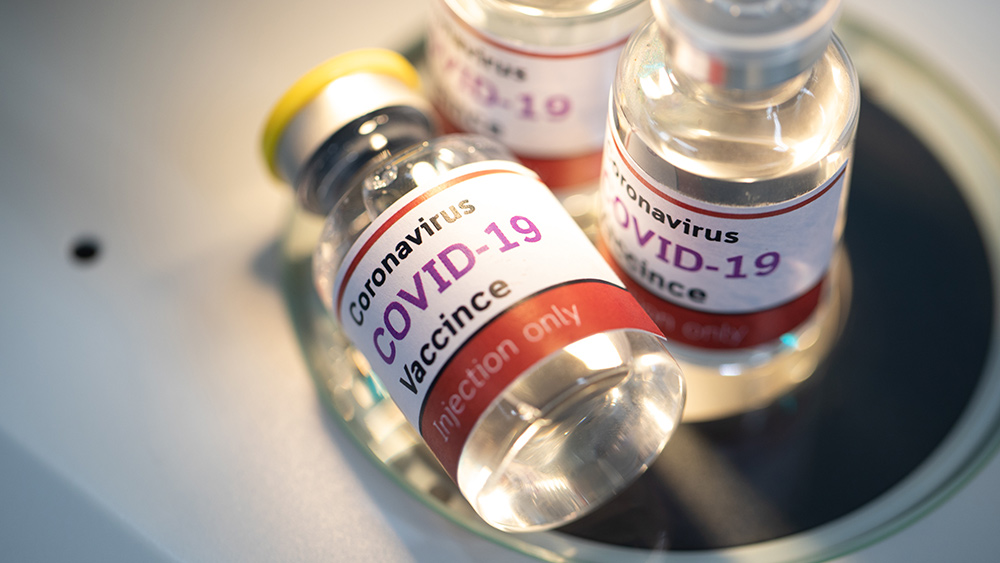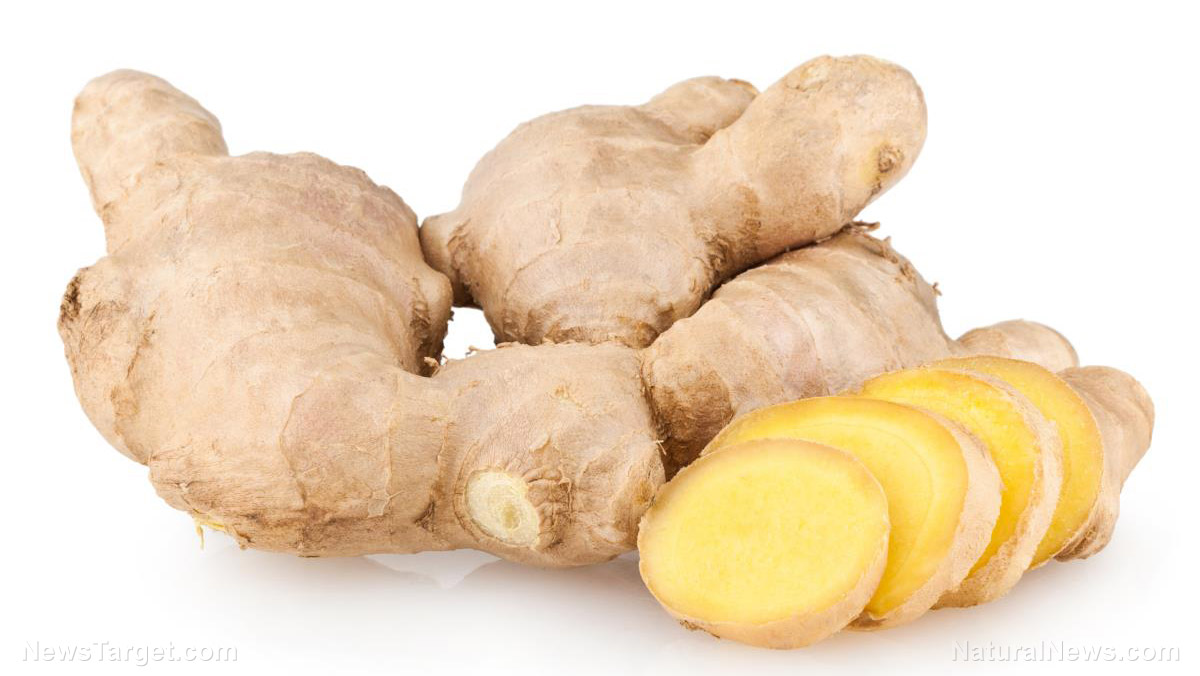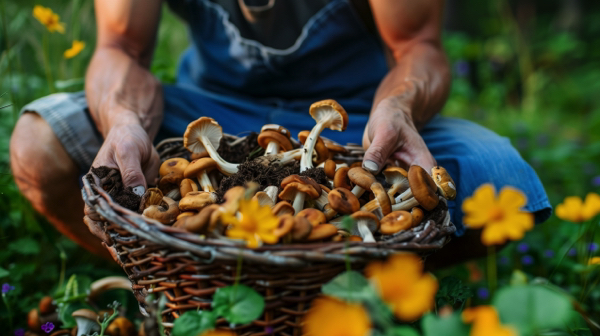Asparagus: The nutritional superstar you need in your diet
08/06/2025 / By Laura Harris

- Asparagus has been valued since ancient times by civilizations like the Egyptians, Greeks and Romans for its culinary appeal and medicinal properties. It later became popular across Europe and North America.
- Rich in vitamins (K, C, A, E), minerals (iron, zinc, potassium), antioxidants (glutathione, quercetin) and prebiotic fiber, asparagus supports immunity, bone health, digestion and detoxification.
- Generally safe and beneficial to consume, asparagus may cause odor in urine and should be consumed in moderation by those with gout or kidney issues due to its purine content.
- Asparagus is low in pesticide residues but may still carry risks from chemical use or heavy metals in polluted soil. Organic options are preferable for minimizing exposure.
- Asparagus can be enjoyed steamed, grilled, stir-fried, in soups or raw in salads, making it a flavorful and healthful addition to diverse diets.
Asparagus, a slender and vibrant green vegetable, has been revered for centuries as both a culinary delight and a medicinal powerhouse. Packed with essential vitamins, minerals and antioxidants, asparagus is a true superfood that supports overall health. But beyond its modern-day popularity, this vegetable boasts a rich history, dating back to ancient civilizations that recognized its healing properties.
Brief history of asparagus
Asparagus (Asparagus officinalis) is a perennial flowering plant that was first cultivated over 2,000 years ago in ancient Egypt, Greece and Rome, where it was prized for its delicate flavor and medicinal benefits. The ancient Greeks and Romans believed asparagus could alleviate toothaches and bee stings, while ancient Chinese herbalists used it to treat arthritis and inflammation.
By the 16th century, asparagus had spread across Europe, becoming a favorite among royalty. King Louis XIV of France famously adored asparagus so much that he had special greenhouses built to ensure year-round availability. The vegetable eventually made its way to North America with European settlers, where it became a staple in both home gardens and commercial farming.
Today, asparagus is cultivated worldwide, with China, Peru and Mexico leading global production. Its seasonal availability, typically from spring to early summer, makes asparagus a sought-after delicacy in many cuisines. (Related: Put some purple on your plate: Why you should eat more of these powerhouse veggies.)
Nutritional profile and health benefits
Asparagus is a low-calorie vegetable (about 20 calories per 100 grams, g) that delivers an impressive array of nutrients, including:
Vitamin K
- Essential for blood clotting, vitamin K helps wounds heal properly by enabling the formation of clotting proteins. It also plays a key role in bone metabolism by aiding calcium absorption and reducing the risk of fractures and osteoporosis.
Folate (B9)
- Crucial for DNA synthesis and cell division, folate is especially important during pregnancy to prevent neural tube defects in developing fetuses. It also helps lower homocysteine levels, reducing the risk of cardiovascular disease.
Vitamin C
- A potent antioxidant, vitamin C strengthens the immune system and aids in collagen production, which supports skin elasticity and wound healing. It also enhances iron absorption from plant-based foods.
Vitamin A
- Vital for maintaining healthy vision, vitamin A supports eye function in low-light conditions. Additionally, it strengthens the immune system by maintaining mucosal barriers and promoting white blood cell activity.
Vitamin E
- A powerful fat-soluble antioxidant, vitamin E protects cell membranes from oxidative damage caused by free radicals. It also supports skin health and may help reduce inflammation.
Potassium
- This electrolyte helps regulate blood pressure by counteracting the effects of sodium and relaxing blood vessel walls. Adequate potassium intake is linked to a lower risk of stroke and heart disease.
Phosphorus
- Working alongside calcium, phosphorus is essential for building and maintaining strong bones and teeth. It also plays a role in energy production as a component of ATP (adenosine triphosphate).
Iron
- Necessary for red blood cell formation, iron helps prevent anemia by ensuring proper oxygen transport throughout the body. Asparagus provides non-heme iron, which is better absorbed when paired with vitamin C-rich foods.
Zinc
- Supporting immune function, zinc helps the body fight infections and speeds up wound healing. It also plays a role in DNA synthesis and cell growth.
Glutathione
- A master antioxidant, glutathione neutralizes harmful compounds and combats oxidative stress, reducing cellular damage. It also supports liver function and may slow aging.
Quercetin and rutin
- These flavonoids have anti-inflammatory properties and may improve heart health by strengthening blood vessels and reducing blood pressure. They also exhibit potential anticancer effects.
Asparagine
- A natural diuretic, asparagine helps flush excess salts and fluids from the body, supporting kidney function and reducing bloating.
Prebiotic fiber
- Asparagus contains inulin, a type of fiber that feeds beneficial gut bacteria, improving digestion and enhancing nutrient absorption. A healthy gut microbiome is linked to better immunity and mental health.
High water content (about 93 percent)
- With its high water content, asparagus helps maintain hydration and supports detoxification by promoting kidney function and flushing out toxins.
Asparagus is widely regarded as a nutritional powerhouse with very few drawbacks. But while most people can enjoy it without issues, some may notice a strong odor in their urine due to the breakdown of asparagusic acid – a harmless but noticeable effect. Allergic reactions are rare but possible in sensitive individuals.
Additionally, those with gout or kidney stones should moderate their intake as asparagus contains purines, though moderate consumption is generally safe for most people. For the vast majority, asparagus is a highly beneficial addition to a balanced diet.
Asparagus ranks among the cleanest vegetables in terms of pesticide residue, appearing low on the Environmental Working Group’s (EWG) “Dirty Dozen” list. However, conventional farming may still expose it to chemicals like chlorpyrifos (a neurotoxic insecticide now banned in many countries) and glyphosate (a potential carcinogen used in weed control).
While asparagus absorbs fewer pesticides than leafy greens, choosing organic can further minimize exposure. Heavy metal contamination (such as cadmium or lead) is uncommon but may occur in polluted soils, making organic or trusted sources the safer choice.
Culinary uses of asparagus
Asparagus is incredibly versatile in the kitchen. Its tender spears can be:
- Steamed or boiled (classic preparation, often served with butter or hollandaise sauce)
- Grilled or roasted (enhances natural sweetness, pairs well with olive oil and garlic)
- Stir-fried (common in Asian cuisine, combined with ginger and soy sauce)
- Blended into soups (asparagus soup is a creamy, nutrient-dense option)
- Raw in salads (shaved thinly for a crisp texture)
From ancient medicine to modern nutrition science, asparagus has proven itself as a vitamin-rich, detoxifying and delicious vegetable. Whether chosen for its folate content (great for pregnancy), its anti-inflammatory properties or simply its crisp texture, asparagus is a worthy addition to any meal.
Remember that this content is for informational purposes only and is not intended as medical advice or to diagnose, treat or cure any disease. For personalized guidance on your health and dietary needs, consult a qualified healthcare professional or naturopathic physician.
Explore more about the health benefits of superfoods and other natural ingredients at NaturalNews.com, your trusted source for wellness insights and nutritional knowledge.
For cutting-edge tools to expand your understanding of natural health, try Brighteon.ai, an innovative AI model created by Mike Adams, the Health Ranger. This free, downloadable tool is designed to decentralize knowledge, bypass censorship and empower individuals with actionable information.
If you’re passionate about nutrition, natural medicine and uncensored discussions, visit Brighteon.com, a free speech video platform, and join our vibrant communities on Brighteon.IO and Brighteon.social. Dive into open conversations about food, ingredients and holistic health today!
Watch this video to learn how to bake an asparagus.
This video is from the Cooking Guide channel on Brighteon.com.
More related stories:
Does asparagus help with cancer prevention?
Asparagus may make urine smell funny, but it delivers extraordinary health benefits.
Asparagus can help to lift your spirits and reduce the risk of birth defects.
Sources include:
Submit a correction >>
Tagged Under:
#nutrition, antioxidants, Asparagus, food cures, food is medicine, food science, Fresh, functional food, grocery cures, health science, natural health, nutrients, organics, phytonutrients, vegetables
This article may contain statements that reflect the opinion of the author





















